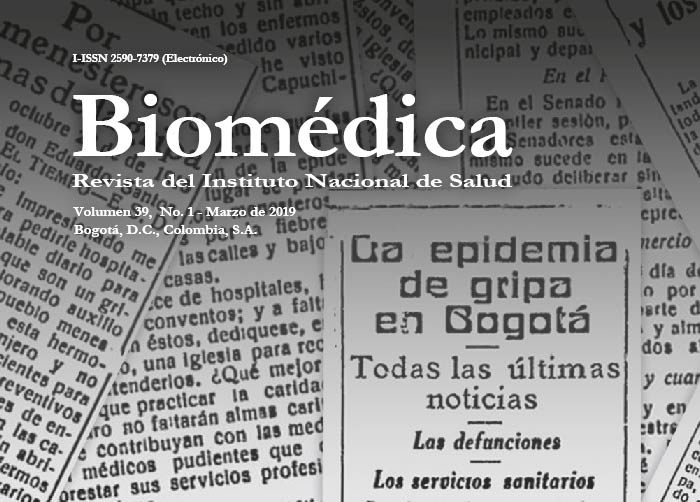LEPR polymorphisms and haplotypes in Mexican patients with colorectal cancer
Abstract
Introduction: Obesity and colorectal cancer could be linked by adipocytokines, which are proteins associated with cell proliferation. High levels of the adipocytokine leptin promote the development of colorectal cancer through its receptor.
Objective: To determine the association between c.326A>G and c.668A>G LEPR gene polymorphisms and colorectal cancer.
Materials and methods: DNA was extracted from the peripheral blood of 147 patients with sporadic colorectal cancer and 134 healthy people. Genotypes were obtained by PCRRFLP and the association was determined by the odds ratio (OR) test using the SPSS™, version 10.0, program. Haplotype frequencies and linkage disequilibrium were estimated by the Arlequin, version 3.5, software.
Results: Both polymorphisms were in Hardy-Weinberg equilibrium. Only the c.326A>G heterozygous genotype revealed an increased risk for colorectal cancer development (OR=1.81, 95% CI=1.04-3.16, p=0.04). The AG haplotype showed a significant association with colorectal cancer (OR=0.58, 95% CI=0.35-0.96, p<0.03). Linkage disequilibrium between the variants was only evident for the patients group (r2=0.36).
Conclusion: Our results suggest that AG individuals heterozygous for the c.326A>G LEPR variant have a higher risk of colorectal cancer development whereas the AG haplotype (c.326A/c.668G) has a protective effect in the Mexican population.
Downloads
Some similar items:

| Article metrics | |
|---|---|
| Abstract views | |
| Galley vies | |
| PDF Views | |
| HTML views | |
| Other views | |

























